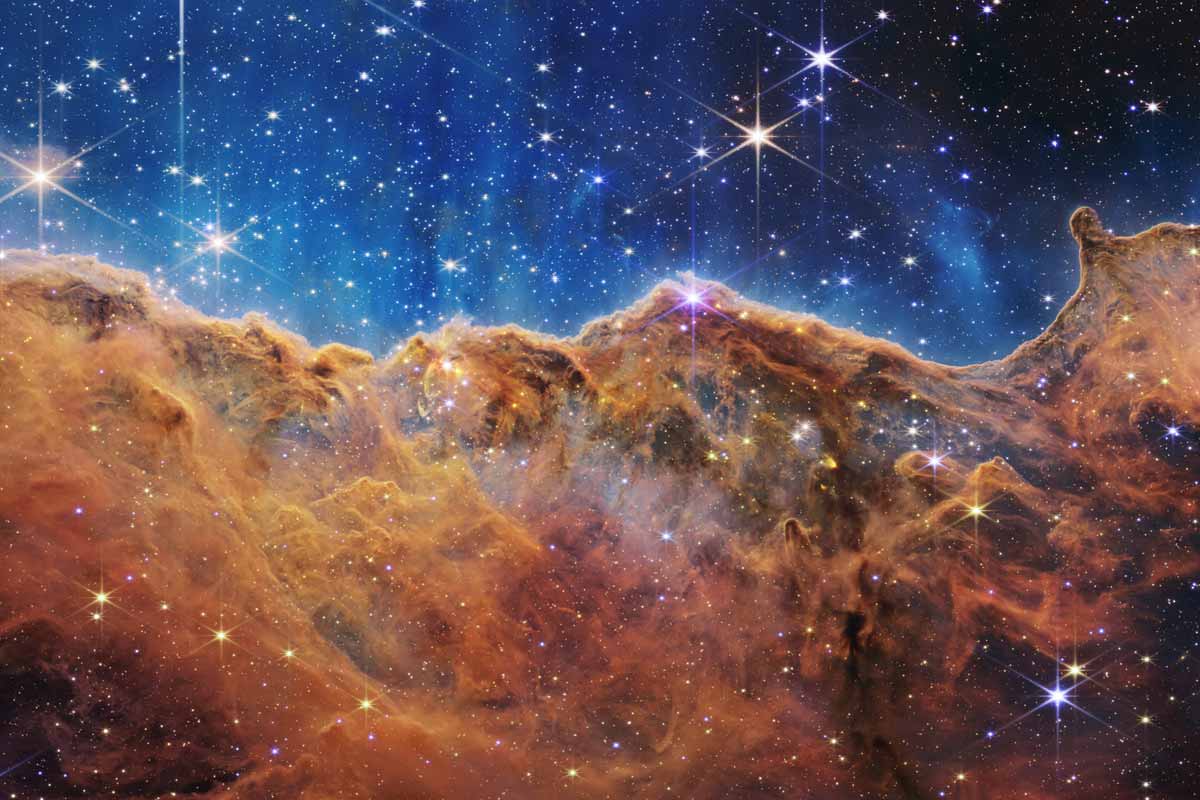Universe expansion is one of those phrases that makes your brain sit up. You hear it and picture galaxies drifting like dandelion seeds. James Webb and Hubble keep sending snapshots, and the story keeps getting weirder. Lean in; this mystery has teeth and a heartbeat.
Webb, Hubble, and a whisper that grew loud
You’ve heard the name James Webb, even if space isn’t your daily obsession. It’s the telescope that took the baton from Hubble and ran farther. Sharper eyes, deeper infrared, a patience that borders on stubborn. Together they’re a duet, old soul and new voice. Their latest chorus pokes at something we thought was settled. Both see the universe expanding, yet their rulers refuse to agree. That mismatch got nicknamed the Hubble tension, which feels right.
Because tension hums, keeps you awake, makes you check the locks again. Some headlines framed it as two directions for the same road. Not quite, yet the vibe sticks. We’re arguing over the speed limit painted on space itself. That’s the part that makes universe expansion feel oddly personal. Money, time, and meaning sneak into the room when numbers disagree.
Universe expansion
Picture a balloon with dots, the childhood kind, soft and a little dusty. You blow, the rubber stretches, and the dots drift away from each other. Space behaves like that, only bigger than our heads can hold. Galaxies move apart because the fabric between them keeps growing. We give that pace a name, the Hubble constant, because we love labels. It’s the universe’s speedometer, the one that hints at age and destiny. Change the number, and the whole timeline moves like furniture.
That’s why universe expansion turns abstract math into a gut feeling. You sense the stakes, even if equations make your eyes glaze. It’s our shared clock, written in light and motion. Miss the pace, and everything else starts wobbling. Scientists can live with mystery, yet they chase it like a good storm.
How we measure a moving sky
Two yardsticks took center stage, and they don’t clap in unison. The first is the cosmic microwave background, the universe’s baby photo. A faint glow from when atoms first calmed down and let light roam. Planck read that texture and returned a number near sixty seven. Each megaparsec spans about three point two six million light-years, which still boggles me. The second method uses Cepheid stars, lanterns that pulse with a steady rhythm.
Brighter stars breathe slower, which lets us read distance from their heartbeat. Stack those distances, compare redshift, and you get a number closer to seventy four. Same universe, two whispers, two answers that won’t shake hands. That gap is the Hubble tension, a stubborn pebble in our shoe. It keeps reminding us that universe expansion might hold an extra twist. We just don’t know the shape of it yet.
Error bars, or new rules?
Early on, people blamed clutter in Hubble’s view. Crowded star fields can trick even a careful eye. Webb arrived with sharper infrared vision and a calm, almost patient stare. In 2023, it checked the same Cepheids and backed Hubble’s distances. That result felt like a firm nod, and the room got quieter. Then came a broader pass in 2025, with more than a thousand Cepheids. Across several galaxies, the pattern held, and the numbers refused to budge.
Not a mistake, at least not the kind we expected to find. Which means the tension points back at the map, not the instruments. That’s a little scary and strangely exciting at the same time. Because if the rulers agree, universe expansion still refuses to fit our story. And now the hunt shifts from smudged glass to missing ideas.
What might be hiding in plain sight
If the data stands, the fix lives in our theories, not our tools. Maybe dark energy isn’t the steady breeze we imagined. Maybe gravity tilts a little on enormous scales. Or there’s a quiet actor we’ve never named, humming between the lines. That kind of possibility makes scientists giddy and a touch uneasy. Webb feels like a detective who refuses to bluff. It doesn’t grandstand; it just keeps bringing receipts in starlight. Hubble, the veteran, still shows up with grit and charm.
Together they’re rebuilding the case from the ground up. And yes, universe expansion sits at the center of the board. Not as a slogan, but as a live question that tugs on everything. We might be close to a turn in the story. Revolutions arrive sideways, then look obvious after the dust settles.
I hope we stay honest, even when the answers feel inconvenient. That’s the promise, and the risk, of listening to the sky. It asks us to change when the evidence knocks, gentle yet insistent. And if the next surprise hurts our pride, we’ll breathe and adjust. Because wonder is bigger than ego, and curiosity feeds everything worth keeping.
